(Dan Tri Newspaper) - After more than two years since the circular economy policies were enacted, many businesses in the construction materials industry have boldly implemented comprehensive green growth strategies, working with the Government to bring net emissions to zero by 2050.
ESG – a powerful tool for governments and businesses to implement a circular economy and achieve sustainable development.
At the 2021 United Nations Climate Change Summit (COP26), Vietnam committed to achieving net emissions of zero by 2050. Accordingly, the government has issued numerous policies to develop the construction materials industry in a sustainable, green, energy-efficient, and environmentally friendly manner.
Notably, the strategy for the development of building materials in Vietnam for the period 2021-2030, with a vision to 2050, was approved by the Prime Minister in Decision No. 1266/QD-TTg dated August 18, 2020. One of its key principles is that the development of building materials must utilize resources efficiently and thoroughly conserve energy, raw materials, and fuel. The goal is to reduce CO2 emissions by 8% by 2030 compared to the present. This is considered a major challenge for businesses in the cement industry.
To achieve the above goal, implementing ESG (environmental, social, and governance) in the construction materials industry is considered a powerful tool for the Government and businesses to implement a circular economy, sustainable development, and move towards Net Zero.
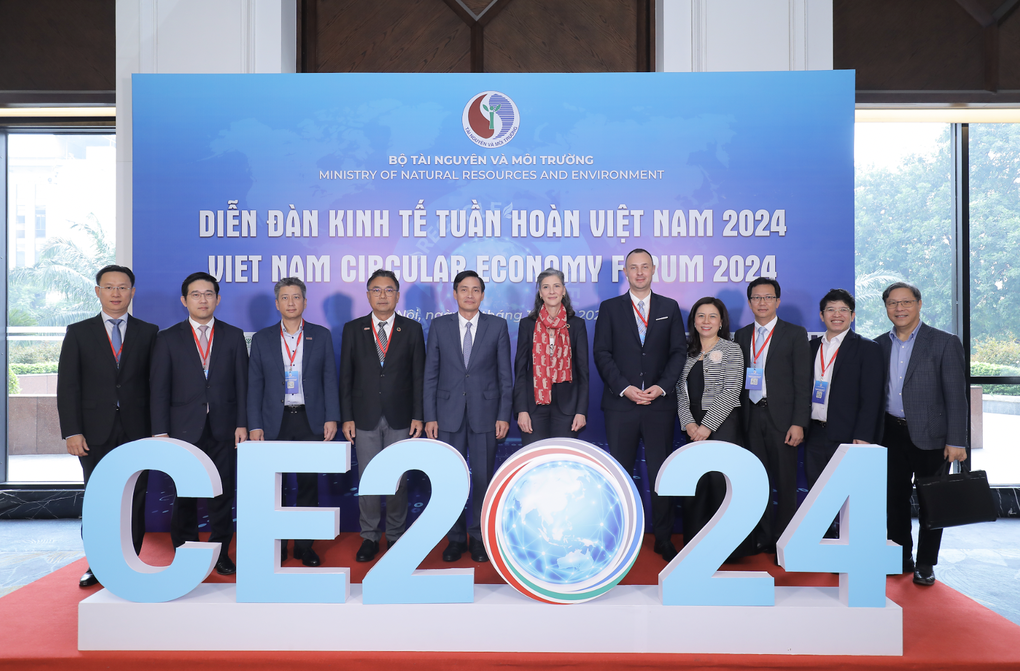
Representatives from the Ministry of Natural Resources and Environment, government agencies, SCG Group, and international organizations and businesses attended the Vietnam Circular Economy Forum 2024.
According to experts, implementing ESG in building materials businesses not only enhances the company's reputation and sustainable value but also makes a positive contribution to environmental protection and community development.
To achieve this, businesses must invest in environmentally friendly production technologies, such as using renewable energy, minimizing the use of fossil fuels, and optimizing production processes; limiting waste from material production, recycling old building materials, and applying waste reduction technologies in the production process.
However, in practice, policies related to the circular economy and ESG are still incomplete, inconsistent, and lacking uniformity at both the central and local levels, leading to difficulties in implementing the circular economy in businesses. This forces businesses that want to be pioneers in implementing the circular economy and aiming for Net Zero to have their own initiatives and boldly deploy comprehensive green growth strategies within their production systems.
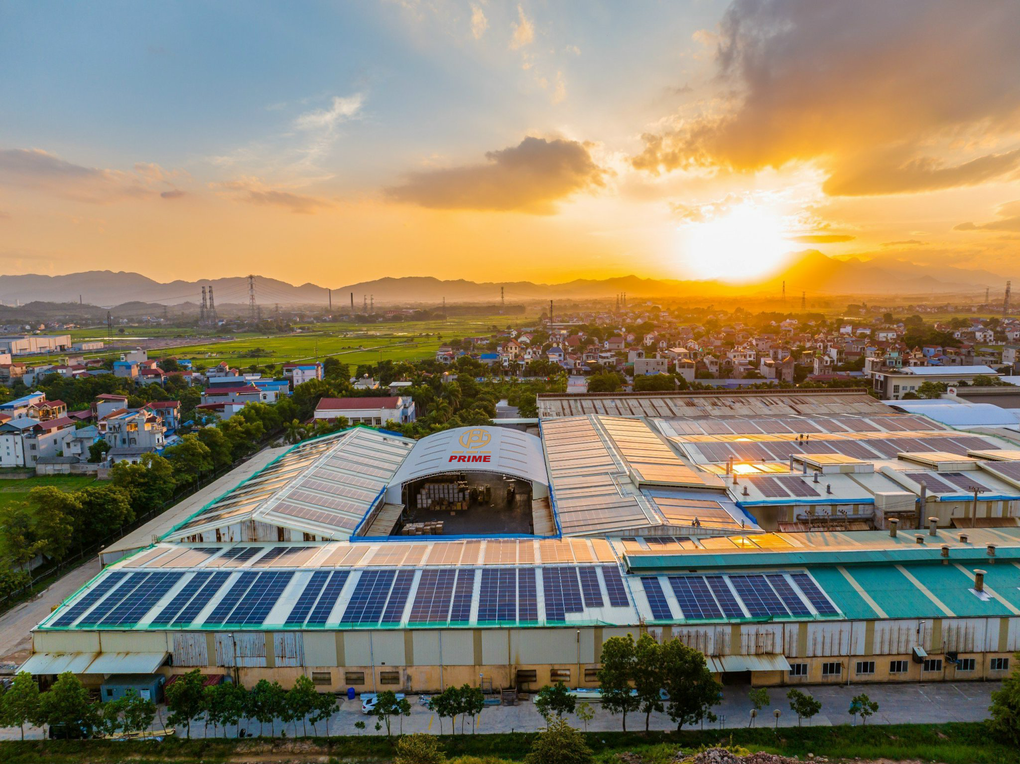
SCG Group's factories are equipped with integrated solar power systems, generating renewable energy and significantly reducing carbon emissions.
SCG successfully implements a comprehensive green growth strategy with ESG 4Plus.
At the Vietnam Circular Economy Forum 2024, Mr. Chana Poomee, Senior Director - Sustainable Development, SCG Group, emphasized: "Cooperation is key to successfully implementing strategies in the circular economy. From a positive mindset to collaborative innovation, from efforts, solidarity, and unity between the State and businesses, I believe that more and more businesses will implement the circular economy and ESG strategies into their business operations, adhering to the new direction and acting together towards a common goal - for a sustainably developed Vietnam."
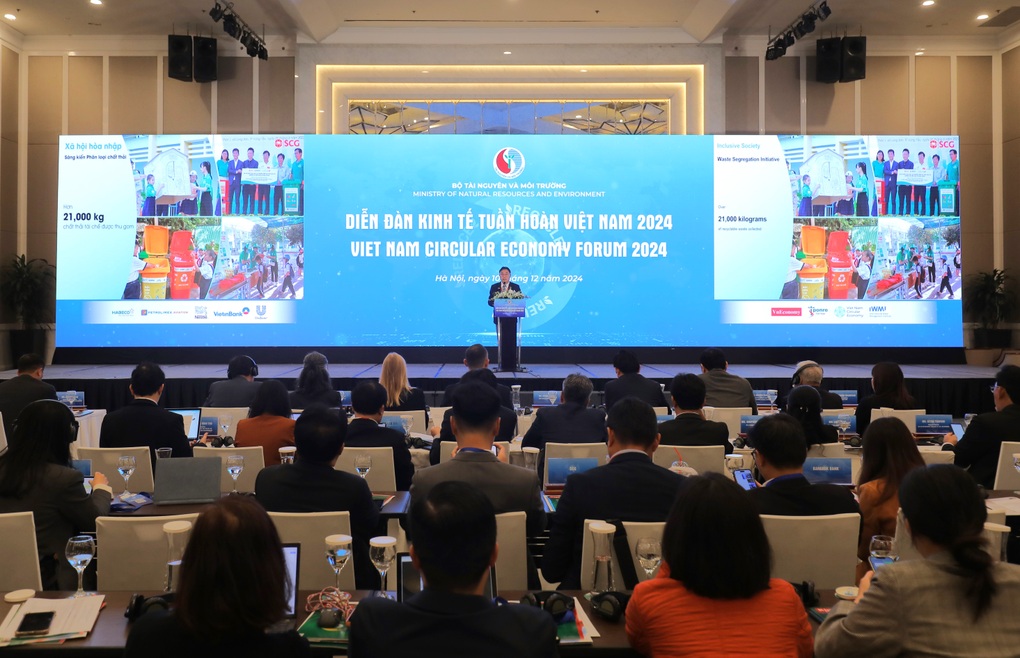
Mr. Chana Poomee, Senior Director - Sustainable Development, SCG Group, shared insights on exemplary circular economy practices for a greener Vietnam.
SCG stated that, in order to implement a circular economy and contribute to the country's green growth goals, the group has proactively fulfilled its commitment over the years through its ESG 4Plus strategy with a roadmap including: Set Net-Zero - Go Green - Reduce Inequality - Embrace Collaboration, Fairness and Transparency in all business operations.
To implement this strategy, SCG stated that it has collaborated with stakeholders and partners, with a diverse range of suppliers, to minimize resource consumption and waste generation. This approach not only helps reduce carbon emissions but also encourages the use of sustainable materials and energy sources, while promoting the development and promotion of environmentally friendly products with reduced impact. These are also the directions emphasized in the National Action Plan for Circular Economy Implementation.
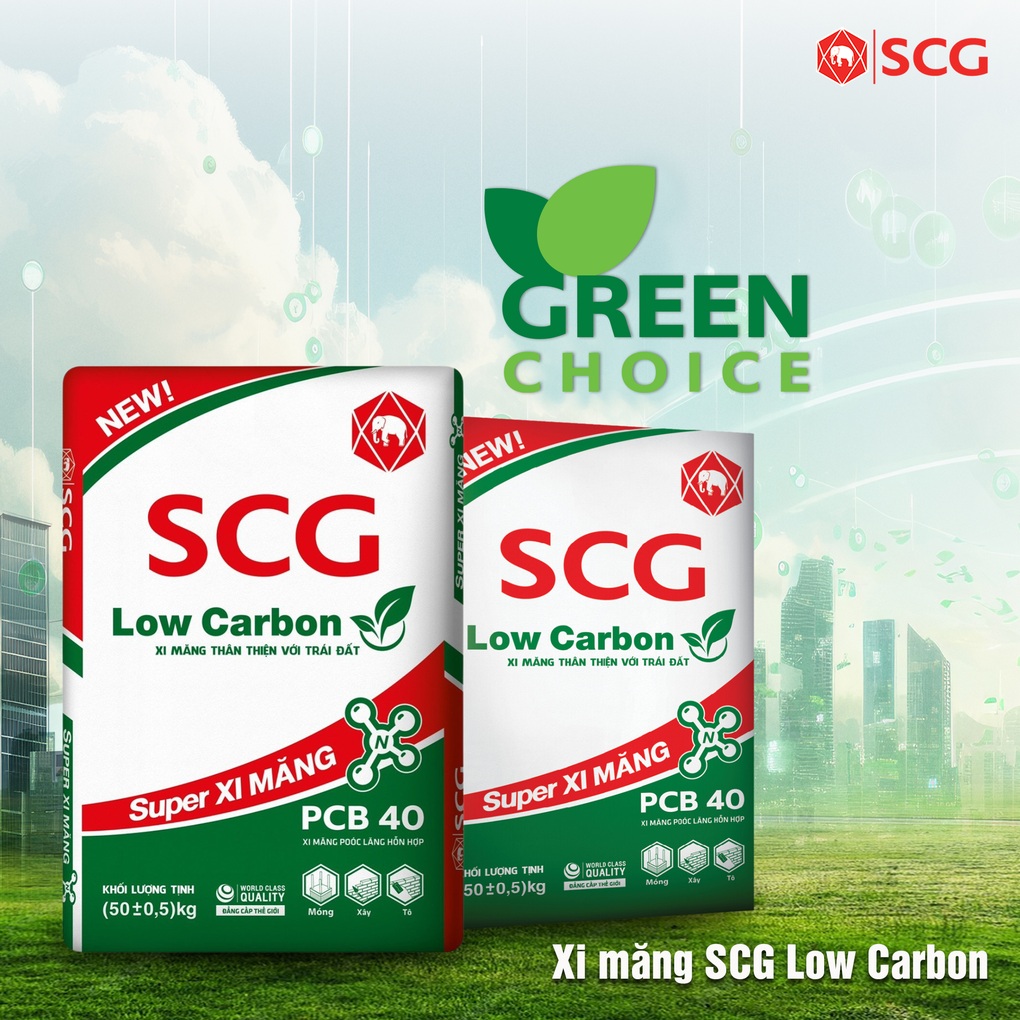
SCG's green cement products utilize alternative fuels instead of fossil fuels and increase the proportion of renewable energy sources.
SCG demonstrates the effectiveness of its comprehensive green growth strategy with its own ESG 4plus initiative, as in 2024, the leading Southeast Asian group introduced low-carbon cement to the market, helping to reduce carbon emissions by 20% compared to conventional cement.
To achieve this goal, SCG improved its production processes to reduce energy consumption and carbon emissions. Specifically, SCG Low Carbon Super Cement uses biomass fuel instead of fossil fuels and increases the proportion of renewable energy sources. In addition, the company installed waste heat recovery systems throughout its factories to reduce carbon emissions generated from the cement production process.
According to SCG, each ton of SCG Low Carbon Super Cement contributes to reducing carbon emissions equivalent to the CO2 absorption of 12 mature trees over a year.
Besides its environmentally friendly properties, SCG also applies nanotechnology to create a line of cement that is more durable and resistant to the effects of harsh weather conditions.
Also in 2024, Prime Group, a subsidiary of SCG, set a new standard in the tile industry by introducing its Slim Tiles product line. In addition, the company implemented waste heat recovery systems and replaced fossil fuels (coal) with biomass, reducing energy and material consumption in production by up to 25%.

Prime Group, a member of the SCG Group, has launched Slim Tiles, an ultra-thin tile product that reduces material and energy consumption by up to 40%.
SCG Low Carbon Super Cement and Slim Tiles are testament to SCG's commitment to pioneering the circular economy in Vietnam, aiming for Net Zero in partnership with the Government.
SCG's initial success can be seen as a model for other businesses in the industry to learn from, thereby building strategies to meet the needs of sustainable development and greening the construction and building materials industry in Vietnam, and achieving the Net Zero 2050 goal.
Source: https://dantri.com.vn/kinh-doanh/doanh-nghiep-nganh-vat-lieu-xay-dung-tien-phong-thuc-thi-kinh-te-tuan-hoan-huong-den-net-zero-20241213100449395.htm



![[Photo] Prime Minister Pham Minh Chinh attends the Conference on the Implementation of Tasks for 2026 of the Industry and Trade Sector](/_next/image?url=https%3A%2F%2Fvphoto.vietnam.vn%2Fthumb%2F1200x675%2Fvietnam%2Fresource%2FIMAGE%2F2025%2F12%2F19%2F1766159500458_ndo_br_shared31-jpg.webp&w=3840&q=75)








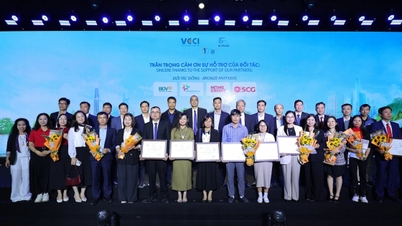

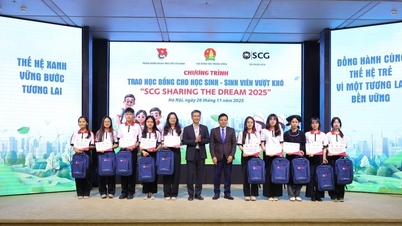
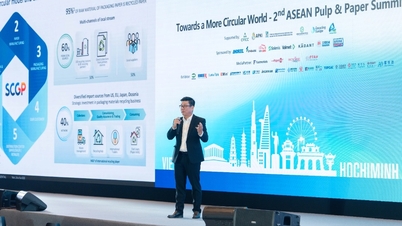
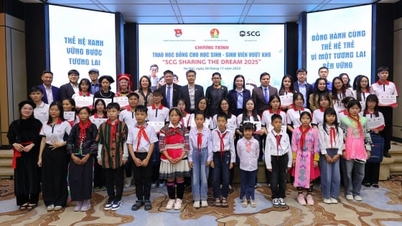






























































































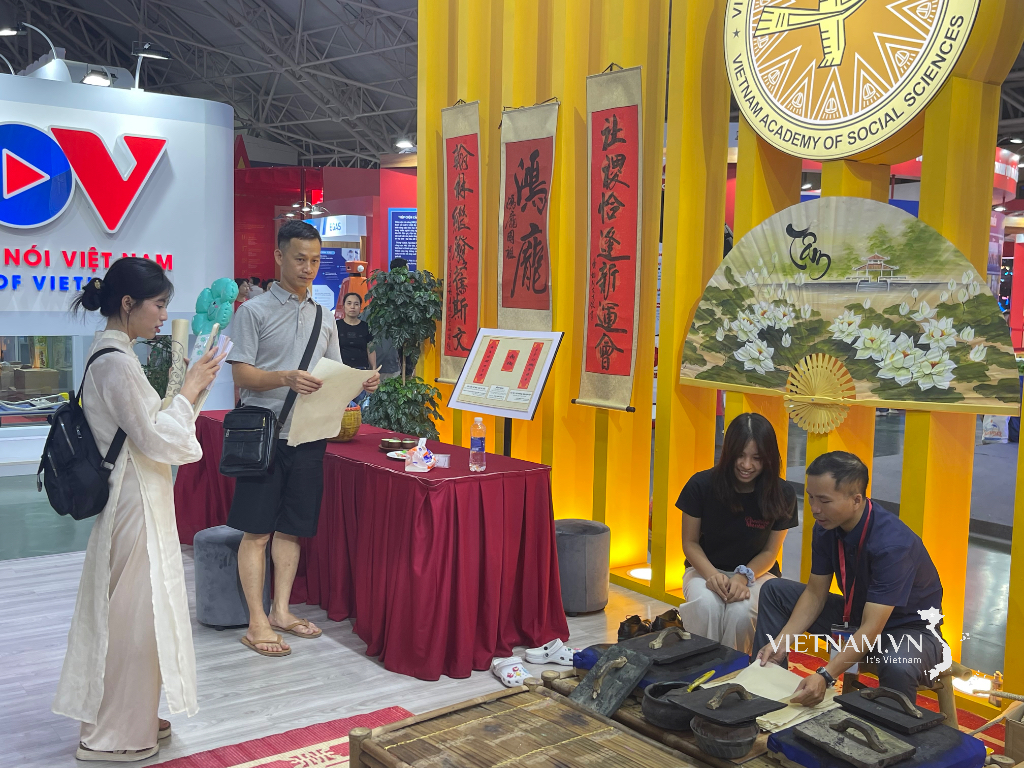
Comment (0)